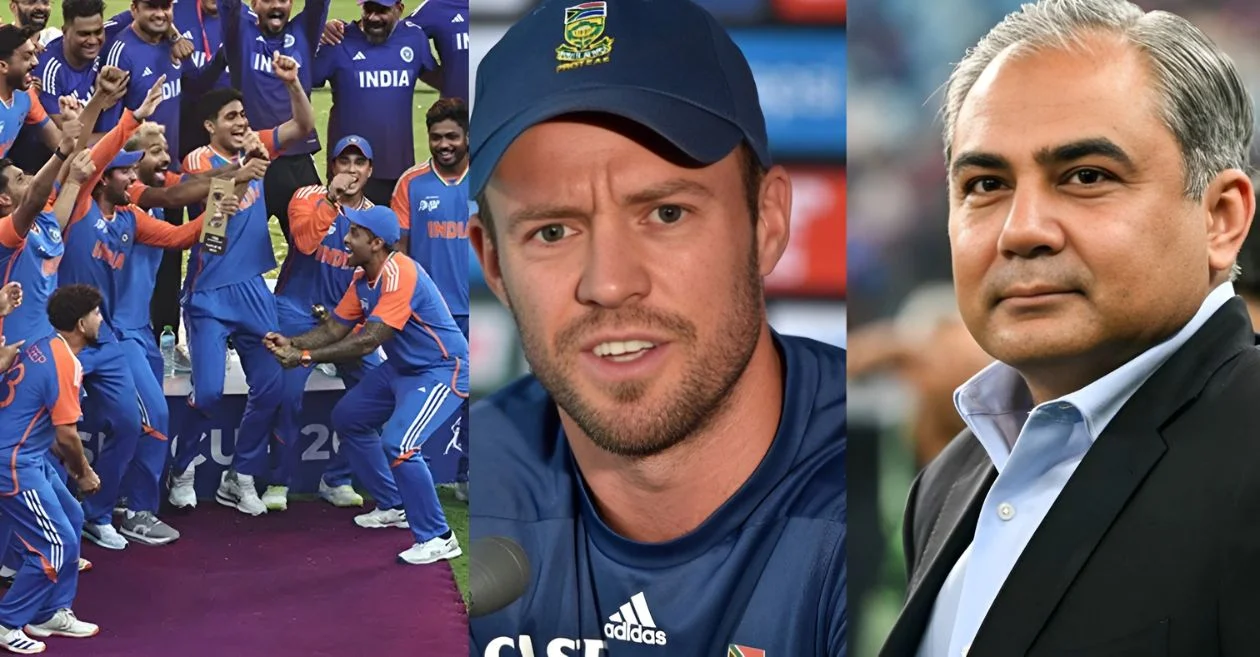
AB de Villiers Reacts to India’s Trophy Controversy at Asia Cup
Introduction
Former South African cricket legend AB de Villiers has voiced his opinion on the controversy surrounding India’s refusal to accept the Asia Cup trophy from Pakistan Cricket Board (PCB) Chairman Mohsin Naqvi. The incident, which quickly gained traction online, has divided fans and reignited discussions about the role of politics in cricket. De Villiers described the situation as both “awkward” and “sad to see,” urging that the spirit of the game should remain above political tensions.
The Incident
The Asia Cup 2025 concluded with India emerging victorious, but the post-match ceremony became the center of attention for reasons beyond cricket. Reports confirmed that Indian players declined to accept the trophy directly from PCB Chairman Mohsin Naqvi, who was present to hand over the award. The moment, caught on camera, appeared uncomfortable and fueled widespread debate across media platforms.
For many cricket enthusiasts, the refusal highlighted the strained relations between India and Pakistan, nations that often find their sporting encounters overshadowed by political differences. The trophy handover, a symbolic part of cricket celebrations, instead became a flashpoint for controversy.
AB de Villiers’ Statement
De Villiers, known for his sportsmanship and respect across the cricketing world, was quick to weigh in on the matter. He expressed disappointment at the incident, stating that such moments detract from the beauty of the sport. According to him, cricket has long served as a bridge between nations, and allowing politics to dominate the stage undermines the values the game stands for.
The South African star stressed that athletes and officials carry the responsibility of setting an example for fans worldwide. In his view, ensuring that the spirit of cricket remains intact should be the highest priority, regardless of political tensions between nations.
Fan Reactions and Online Debate
De Villiers’ remarks triggered a wave of reactions across social media platforms. Some fans supported his stance, agreeing that sports should remain separate from politics and that the refusal to accept the trophy was unnecessary. They argued that the game’s traditions and spirit should not be compromised by off-field disputes.
On the other hand, a section of fans defended the Indian team’s actions, claiming that the gesture reflected deeper national sentiments. For these supporters, the refusal was seen as an assertion of political solidarity rather than a mere breach of sporting etiquette. The divide has highlighted the complexities of cricket’s role in South Asian geopolitics, where the sport often carries symbolic weight beyond the boundary lines.
Broader Implications for Cricket
The controversy underscores how cricket between India and Pakistan continues to be influenced by political realities. While the Asia Cup is meant to celebrate regional sporting excellence, moments like this remind observers that cricket in the subcontinent is rarely just about the game.
De Villiers’ intervention adds an international perspective to the debate, reminding players, officials, and fans of the unifying power of sport. His call for politics to stay out of cricket reflects a broader desire within the global cricket community to preserve the game’s integrity, even amid geopolitical tensions.







